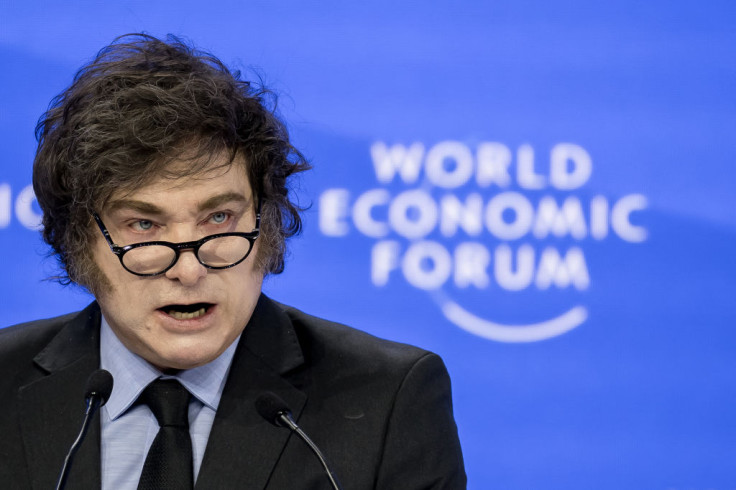
Thousands of Argentines turned out for an anti-austerity protest Wednesday, setting the scene for a 24-hour general strike slated to start at midnight as President Javier Milei awaits news on a fresh IMF loan.
A peaceful demonstration in the capital Buenos Aires preceded Thursday's walkout -- the third general strike in budget-slashing Milei's 16-month-old presidency, and called by unions to protest his brand of "chainsaw" austerity.
Milei had famously wielded a live chainsaw during his presidential campaign to symbolize the cuts he would make to the bureaucracy and social spending.
In office, he has slashed subsidies for transport, fuel and energy, fired tens of thousands of public servants and shuttered entire government departments.
The measures have reduced inflation and resulted in Argentina's first budget surplus in over a decade, but also tipped the country into recession and millions more people into poverty in the first months of Milei's government -- though official data shows the numbers improving.
"The cost (of austerity) for vulnerable sectors is infinitely higher than is suggested by the monthly inflation index," Hector Daer, secretary general of the CGT labor movement, said ahead of the strike.
The action is set to paralyze trains and planes, and shutter schools and banks.
National carrier Aerolineas Argentinas, which Milei wants to privatize, announced the cancellation of 258 flights, affecting some 20,000 passengers. Bus drivers were not part of the action.
Argentina has one of the world's highest annual inflation rates, but Milei's measures are credited with bringing it down from 211 percent in 2023 to 66 percent.
Unions say the positive macroeconomic figures bely the average Argentine's loss of purchasing power.
Ahead of the work stoppage, Buenos Aires play host Wednesday to a weekly protest by pensioners -- one of the groups hardest hit by Milei's cuts -- backed by labor unions and other social movements.
On March 12, 45 people were injured when a similar demonstration -- joined by football fans -- turned violent. This time, they marched peacefully.
"I am here to defend the rights of retirees, I have had enough of this government!" said Carlos Salas, a 63-year-old civil servant that took part in the protest that came as Argentina awaits the final word on a $20 billion loan it is seeking from the International Monetary Fund.
Milei says the money will allow his government to pay off its debts to the central bank and help "exterminate" inflation -- a key goal as the mid-term legislative campaign approaches, with his party seeking to increase its representation in Congress.
Argentina already owes $44 billion to the IMF, which said Tuesday it had reached a preliminary loan agreement with the South American country.
Final approval by its executive board could follow "in the coming days," according to the lender.




